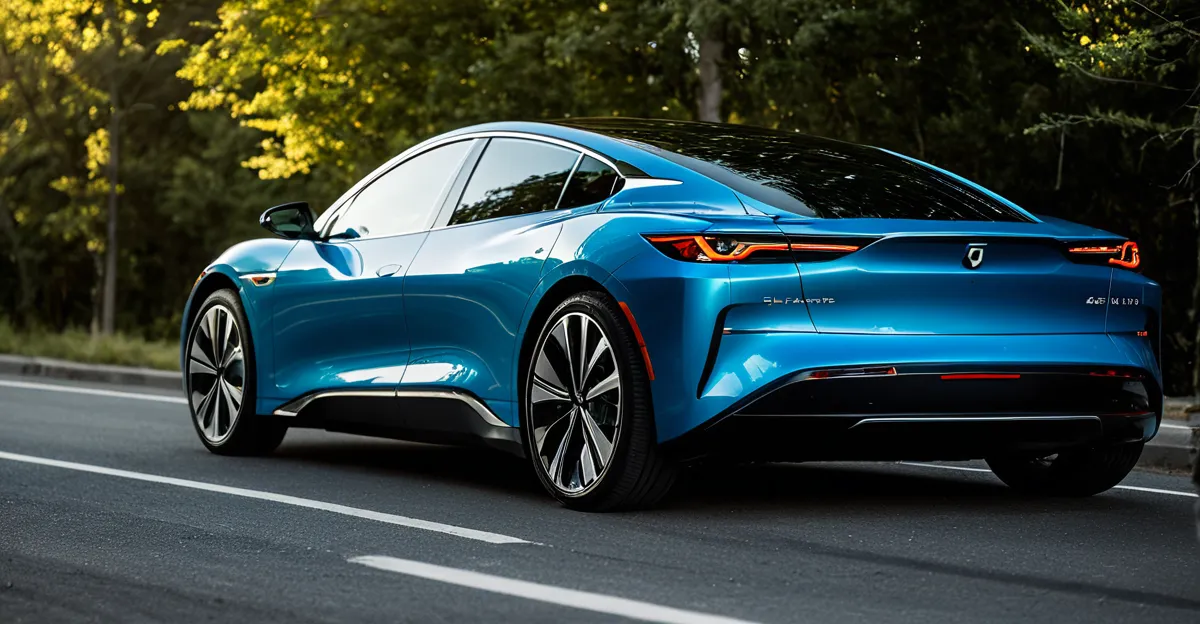How Will the Rise of Electric Vehicles Influence the Future of Petrol Cars?
The automotive industry is on the cusp of a significant transformation, driven largely by the increasing popularity and technological advancements of electric vehicles (EVs). As EVs continue to gain traction, it’s natural to wonder how this shift will impact the future of petrol cars. Here’s a detailed look at the various facets of this transition.
The Growing Appeal of Electric Vehicles
Electric vehicles have been gaining ground over the past decade, and their appeal is becoming harder to ignore. Several factors contribute to their rising popularity:
Also read : How Will Autonomous Vehicles Revolutionize UK Public Transportation?
Environmental Benefits
One of the most compelling reasons for the switch to EVs is their environmental impact. Unlike petrol and diesel cars, EVs produce zero tailpipe emissions, significantly reducing air pollution and greenhouse gas emissions. As countries strive for net zero emissions, EVs are seen as a crucial component in achieving these goals.
Technological Advancements
Recent advancements in battery technology have made EVs more viable. For instance, General Motors is set to launch a new, cheaper EV battery by 2028, featuring a prismatic cell design that offers significant advantages over cylindrical cells, particularly in terms of energy density and charging efficiency[1].
Also to read : What Solutions Exist for Reducing Emissions in UK’s Automotive Industry?
Cost and Efficiency
While the initial purchase price of EVs can be higher, they often offer lower operating costs. With fewer moving parts, EVs require less maintenance than traditional petrol or diesel cars. Additionally, the cost of electricity is generally lower than that of fuel, making EVs a more economical choice in the long run.
Impact on Petrol Car Sales
The rise of EVs is already affecting petrol car sales in several ways:
Declining Sales
As consumers become more aware of the benefits of EVs, sales of petrol cars are beginning to decline. In the United States, for example, EV interest may have hit a 6-year low recently, but the first quarter of 2025 still saw nearly 300,000 EVs sold, an 11.4% increase from the previous year. General Motors led this surge, nearly doubling its EV sales[3].
Market Shift
The market is gradually shifting towards electric and hybrid options. Toyota’s new RAV4, for instance, comes with hybrid and plug-in hybrid electric vehicle (PHEV) options, significantly improving its electric-only driving capabilities[2].
Price Competition
To stay competitive, manufacturers are adjusting their pricing strategies. BYD, a Chinese EV giant, recently announced aggressive price cuts of up to 35%, which, although it led to a drop in shares, highlights the increasing competition in the EV market[4].
Charging Infrastructure and Accessibility
One of the critical factors influencing the adoption of EVs is the availability and accessibility of charging infrastructure.
Expansion of Charging Points
Governments and private companies are investing heavily in expanding public charging points. This includes both fast-charging stations along highways and urban charging points. For example, Canadian EV bus manufacturer Damera Corporation is investing in infrastructure as part of its expansion into the U.S. market[5].
Home Charging
Home charging solutions are also becoming more prevalent, making it easier for EV owners to charge their vehicles conveniently. Many new homes and apartments are being built with EV charging points, further facilitating the switch to electric cars.
Practical Considerations for Consumers
For consumers considering switching to an electric vehicle, here are some practical considerations:
Cost Comparison
- Purchase Price: EVs can be more expensive upfront, but they often come with government incentives.
- Operating Costs: Lower fuel costs (electricity vs. petrol/diesel) and reduced maintenance costs.
- Battery Life: Advances in battery technology are extending the lifespan of EV batteries.
Charging Time and Range
- Charging Speed: Fast-charging stations can charge an EV to 80% in under 30 minutes.
- Range Anxiety: Many new EV models offer ranges over 300 miles on a single charge, alleviating range anxiety.
Environmental Impact
- Zero Emissions: EVs produce no tailpipe emissions, contributing to cleaner air and reduced greenhouse gas emissions.
- Source of Electricity: The environmental impact also depends on the source of the electricity used to charge the vehicle.
Table: Comparison of Electric and Petrol Cars
| Feature | Electric Cars | Petrol Cars |
|---|---|---|
| Fuel Source | Electricity | Petrol or Diesel |
| Emissions | Zero tailpipe emissions | Emissions contribute to air pollution and greenhouse gases |
| Operating Costs | Lower fuel costs (electricity) and reduced maintenance | Higher fuel costs and more frequent maintenance |
| Performance | Instant torque, smoother acceleration | Traditional engine performance |
| Charging Time | Fast-charging: 30 minutes to 80%; Home charging: several hours | Refueling: a few minutes |
| Range | Varies by model; typically 200-500 miles | Varies by model; typically 300-600 miles |
| Battery Life | Advances in technology are extending battery life | No battery concerns |
| Environmental Impact | Depends on the source of electricity; generally lower emissions | Higher emissions |
| Government Incentives | Often available to encourage adoption | Typically not available |
Quotes from Industry Experts
- “The future of transportation is electric, and we’re committed to making that future accessible and affordable for everyone.” – Mary Barra, CEO of General Motors[1].
- “As we move towards a net-zero emissions future, the role of electric vehicles becomes increasingly critical. Our new RAV4 models reflect this commitment.” – A Toyota spokesperson[2].
The Road Ahead for Petrol Cars
As the world transitions towards electric vehicles, the future of petrol cars looks increasingly uncertain.
Phasing Out Petrol and Diesel
Several countries have set targets to phase out new petrol and diesel car sales in the coming decades. For example, the UK aims to ban the sale of new petrol and diesel cars by 2030, with other countries following similar paths.
Adaptation by Manufacturers
Automakers are adapting to this new landscape by investing heavily in EV technology and production. Companies like Tesla, which pioneered the modern EV market, continue to innovate and expand their offerings.
Consumer Behavior
Consumer behavior is also shifting, with more people considering the environmental and economic benefits of EVs. As charging infrastructure improves and the range and performance of EVs increase, more consumers are likely to make the switch.
The rise of electric vehicles is set to significantly influence the future of petrol cars. With advancements in technology, increasing environmental concerns, and shifting consumer preferences, the automotive industry is on the brink of a major transformation. As we move towards a more sustainable and environmentally friendly future, it’s clear that electric vehicles will play a central role.
For those considering making the switch, here are some final tips:
- Research Thoroughly: Understand the different types of EVs available and their specifications.
- Check Incentives: Look into government incentives and tax credits that can help offset the initial cost.
- Test Drive: Experience an EV firsthand to understand its performance and features.
- Plan Charging: Ensure you have access to reliable charging infrastructure.
As we embark on this new era in road transport, one thing is certain: the future is electric, and it’s arriving faster than ever anticipated.

